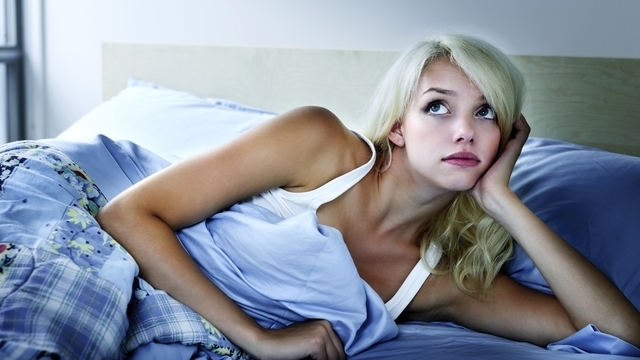 Elena Elisseeva/Photospin
Elena Elisseeva/Photospin
As my other article discussed, there are a variety of natural treatments for insomnia and sleeping problems, but the research is very limited. Several studies show natural treatments to be ineffective, though some people swear by them.
For example, many people say to drink warm milk to fall asleep. There is some research to support this: some ingredients in milk, like magnesium and calcium, have been found to help in sleep. However, there seems to be more recent research focusing on breast milk and infant sleep and a limited amount of studies actually discussing milk and sleep directly for adults.
One study focusing on the evolution and development of insomnia treatments stated that “dietary supplements, herbal compounds, and homeopathic preparations often are promoted as sleep aids” and that they are unregulated by the FDA. Therefore, it is not really known how effective and safe they are. Also, “few efficacy studies have been performed with these substances and none has demonstrated convincing benefits in improving sleep.”
In the 2010 Sleep in America poll by the National Sleep Foundation, whites were found to use herbal and alternative therapies more often than Asians, Hispanics and Blacks. However, they also had the highest rate of insomnia, and Blacks had the highest rate of sleep apnea.
Passion flower has been cited by a few sources to possibly help with sleep. However, more research is needed, like for most natural therapeutics. According to MedlinePlus, it has been used as a sedative and hypnotic, and it’s said to be calming.
St.John’s Wort is more commonly associated with treating depression, and even then studies are conflicting, but it has also been suggested to treat sleeping disorders. It’s said to have fewer side effects than antidepressants when it’s used as an alternative to treat depression. One recent study review found that it doesn't effectively treat anxiety. The doctor involved in the review said that patients should be wary of alternative treatments that haven't been proven effective or safe, and that cognitive behavioral therapy is a better option if patients want to avoid medication.
Kava kava, a root, is said to cause relaxation and other positive effects, like a lifting of the mood, according to the University of Maryland Medical Center. It has also been used to treat insomnia. There is one main side effect associated with kava kava, though, which is liver damage. Therefore, it is best to try other natural treatments, since it’s not even known if recommended or high doses of kava kava caused the liver damage in some people.
Lavender, an herb, can help with insomnia and restlessness, according to the National Center for Complementary and Alternative Medicine. It’s used in aromatherapy, as well as a calming herb called lemon balm.
Acupuncture, a natural treatment involving placing thin needles in the body, can relieve pain and has been found to improve sleep quality for those with HIV.
Overall, before you decide to use an herb or another natural treatment for insomnia or sleeping problems, talk to your doctor to make sure these treatments don’t interfere with any other medications or cause other side effects.
Also, keep in mind that they won’t necessarily cure your sleeping problems — there are many causes of sleeping problems, so try to find the cause first.
Sources:
http://ods.od.nih.gov/factsheets/magnesium.asp
http://www.ars.usda.gov/News/docs.htm?docid=10874
http://www.medicalnewstoday.com/articles/163169.php
http://www.sciencedaily.com/releases/2009/10/091001091757.htm
http://www.prnewswire.com/news-releases/ten-tips-towards-experiencing-a-good-nights-sleep-91812899.html
http://www.prohealth.com/library/bulletinarticle.cfm?ID=6705
http://www.ncbi.nlm.nih.gov/pubmed/15982998
http://www.nlm.nih.gov/medlineplus/druginfo/natural/patient-passionflower.html
http://www.sciencedaily.com/releases/2008/10/081007192435.htm
http://www.sciencedaily.com/releases/2005/05/050522113250.htm
http://www.ncbi.nlm.nih.gov/pmc/articles/PMC1978321/
http://www.sciencedaily.com/releases/2010/03/100308081740.htm
http://www.umm.edu/altmed/articles/kava-kava-000259.htm
http://www.cdc.gov/mmwr/preview/mmwrhtml/mm5147a1.htm
http://www.ncbi.nlm.nih.gov/pubmed/11211670
http://www.sciencedaily.com/releases/2010/02/100209191441.htm
http://nccam.nih.gov/health/acupuncture/introduction.htm
http://nccam.nih.gov/health/lavender/
http://www.ncbi.nlm.nih.gov/pubmed/15046404
http://www.ncbi.nlm.nih.gov/pmc/articles/PMC1513142/
http://www.umm.edu/altmed/articles/lemon-balm-000261.htm
http://www.sciencedaily.com/releases/2010/04/100406151151.htm





Add a CommentComments
There are no comments yet. Be the first one and get the conversation started!